A couple of Fannish Rambles
A couple of posts that other people have made has had me thinking about some fannish issues that I don't normally pay that much attention to. The first is fairly light, and the other one is more serious.
travels_in_time recently made a post about her type when it comes to TV guys. Her post is mostly fun and interesting, and fairly graphics heavy. Mostly it amounts to the fact that in addition to a preference for tall, dark, and handsome, she really likes the good, decent, nice guys. That got me thinking about my "type," for TV guys and unsurprisingly it is really not the same.
So, when I thought about the things that draw me to a character, particularly a male character the list was pretty short and pretty definitive. I like my TV guys to be intelligent, which doesn't necessarily mean the genius-level intellect of say Rodney McKay (though that's nice), but they do have to be really smart about something or generally intelligent enough to deal with the genius-types. I also prefer them to use sarcasm rather frequently, especially when frustrated. That's almost a function of the intelligence thing, because effective sarcasm almost always comes from really smart people. And I like for them to be morally grey. I'm not saying bad boys (although they sometimes are), but in real life I don't usually like people who see the world in black and white. That pretty much goes double for fictional people, and if they tend to live in the grey areas themselves so much the better. I'm not necessarily talking about the bad boys, though a few of these people certainly are.
I have less of a physical type for my TV men, though I do tend towards bright blue eyes and dark hair. Body types are all over the place. But these are at least some of them men on television who over the years have just done it for me.
So here are a few of these guys.
Buffyverse
Rupert Giles
Definitely intelligent, he speaks multiple languages and losing that ability is one of his worst fears. When frustrated he tends toward sarcasm and he is easily and often frustrated.
XANDER: I don't get your crazy system.
GILES: System? It's called the alphabet.
And he is arguably the most morally grey of the human characters on the show. My interest in Giles really grew with every bit of his sordid past that was revealed. I love that his story is as much a story of atonement as Angel's. Ultimately, he's a pragmatist. He does what has to be done, even when it's a little unsavory. In The Gift, he does what Buffy cannot do, something that would make her less the hero, when he kills Ben.

Giles hard at work, being smart.
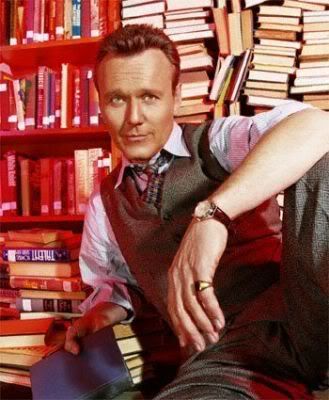
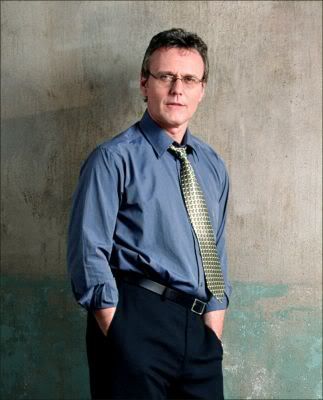
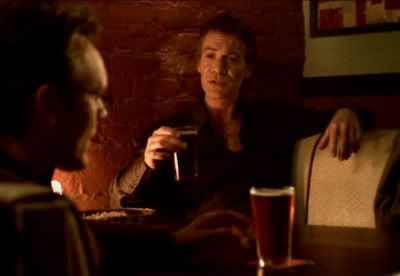
Giles with Ethan, which brings me to my second Buffyverse guy.
Ethan Rayne
Okay, so he's a little less grey and a little more blackly evil, but I love him anyway. And in my own personal little world where we have a lot more backstory and a less nasty future than his past, he's more grey. Yeah, and while one can debate how smart he is in many ways, he is clearly intelligent in others.



Spike
So maybe in the beginning he was less grey, but he gets more and more grey as the shows go on. He's certainly sarcastic, and while his intelligence is debatable I think there is some evidence for it. He's far too impatient to make good plans. He's not a strategist, but he's shown as a well-educated young man when Dru turns him, and really it takes a certain amount of intelligence to write even bad poetry. I think he's usually smarter than people give him credit for.

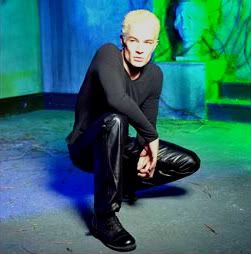
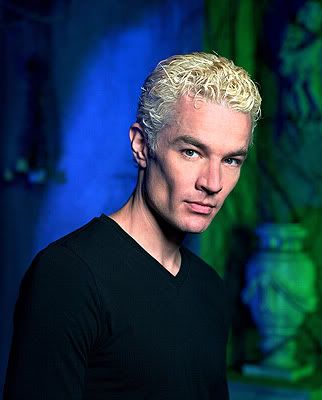
Wesley Windham-Pryce
He is possibly the smartest guy on this list. He seems to know more languages than Giles, and he's got a great grasp of science/technology as well. When he first appeared on Buffy he was self-righteous and all about the black and white understanding of the world. I was amused by him, but I didn't like him. He was already different when he showed up on Angel and I found him kind of adorable in his awkward innocence, but as the show wore on he kept doing more and more questionably moral things (though like Giles he is primarily a pragmatist) and I just loved him more with each one. He's one of the less sarcastic men on the list, but get him annoyed and out it comes.

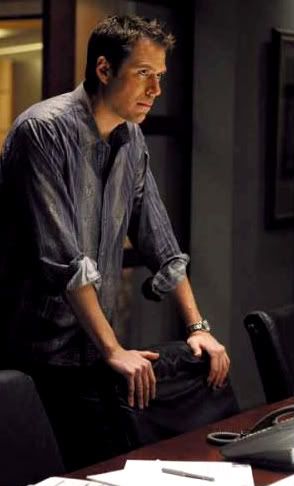
Chuck
Major John Casey
You don't get to be an NSA operative without being smart. He might not advertise how smart he is, but what he does takes more than brute strength and good aim. Does he ever speak in this show when he's not being sarcastic? And yeah, I think he definitely falls into the morally grey category.
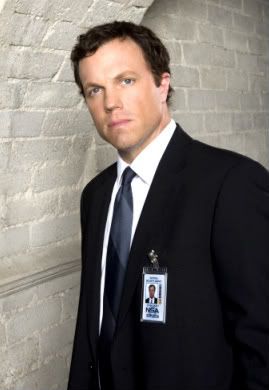
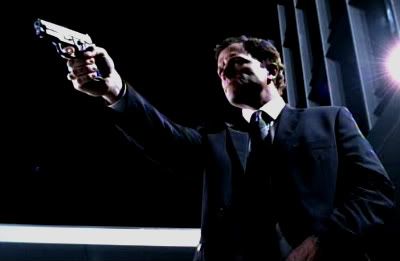
CSI: NY
Danny Messer
So, he's only very pale grey, by virtue of an interesting past, he can be very very sarcastic when annoyed though, and he's smart. He's street smart and book smart, putting him fairly high up on my list.

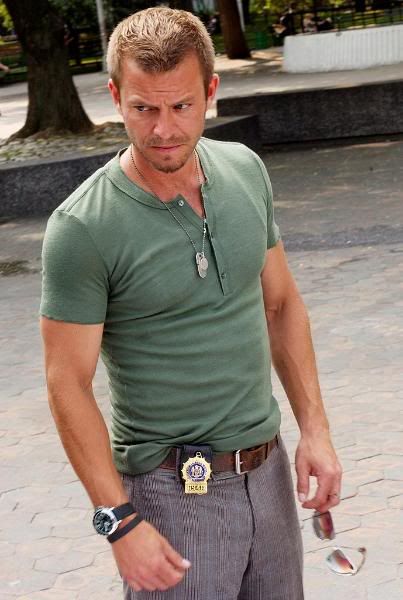
Dirty Sexy Money
Brian Darling
Brian is my very favorite DSM character. He rarely speaks without being sarcastic and he's very smart. He's also an Episcopal priest who has had a long-term affair, has a child out-of-wedlock, and is generally nasty to people most of the time. He's not a nice guy, and I'd say he definitely falls into the grey area.
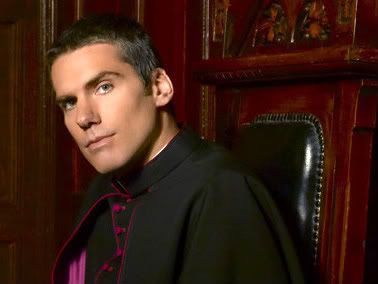
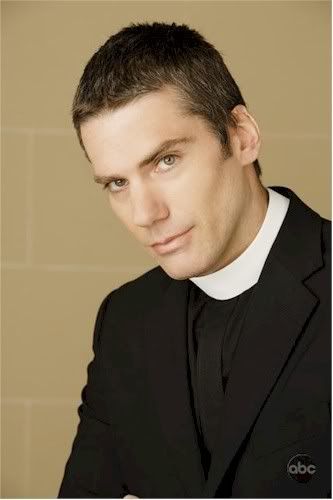
Eureka
Nathan Stark
His moral greyness is debatable, but I see him as essentially pragmatic like Giles. If it gets the job done, he'll do it, no matter how distasteful. He's sarcastic a lot of the time, though his tends to have a more playful edge to it than the angry/bitter note that most of the other people on this list have. He's a genius.
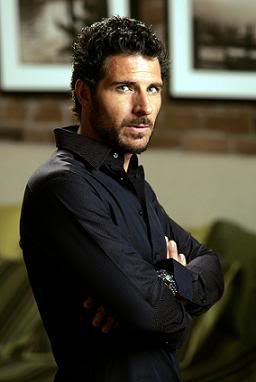
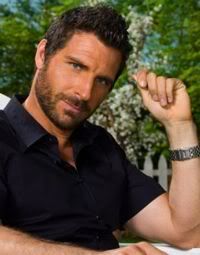
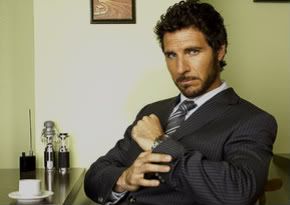
Heroes
Mohinder Suresh
He's basically a good guy, I think, but he does some questionably moral things, especially if we get into the things he does in the 5 Years Gone timeline. He's definitely capable of being fairly dark. He's only really sarcastic when very frustrated, and he's not the most easily frustrated on the list. He's extraordinarily intelligent. He's also probably the only guy on this part of the list that would make it on to my exceptions list even if his character were the most lily-white of do-gooders. He's just so pretty.
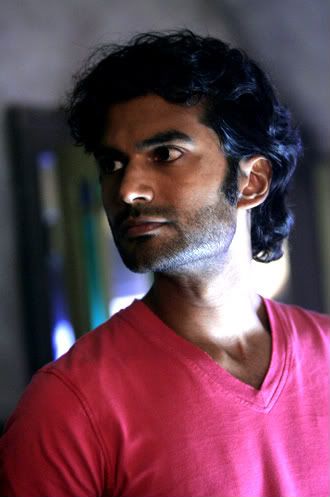
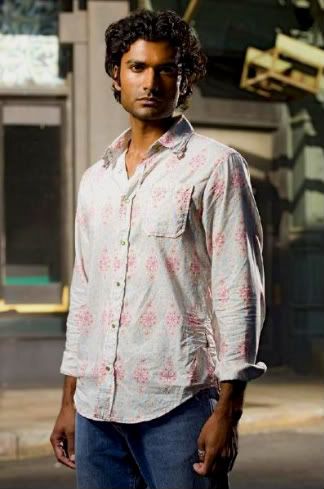
Nathan Petrelli
He's my favorite of the Petrelli clan (Unless it's his mother, but he's definitely my favorite guy). He's smart enough to be a successful attorney and get elected to Congress in a place that actually values intelligence in their politicians. He's quite often sarcastic. There are lines that I don't think he would cross, but they're a lot further out than those of most people. Even then, if it came down to protecting his family, they probably go away altogether. He's definitely more than willing to play in the darkness if the reward is great enough.
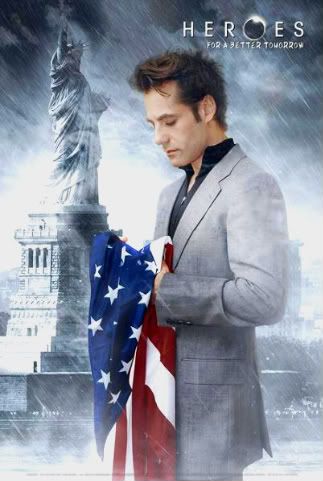
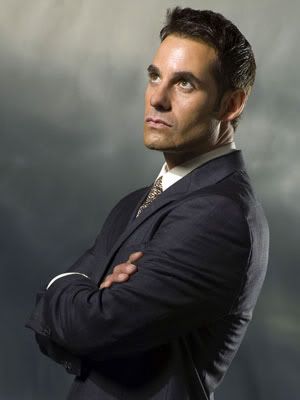
House
Robert Chase
I adore Chase, and only slightly less since he's become the big whiny crybaby of the show. He is pretty, and I like his accent, but that's not what got me hooked on the character. He's a little bitter and a lot sarcastic. He's smart, and he's the most willing of the group to make questionably ethical decisions if he thinks it will either A) save the patient, or B) get him on House's good side. I know that Foreman is the one that always gets compared to House, but in a lot of ways I think Chase is the most like him, and the most likely to become even more like him as time goes on.
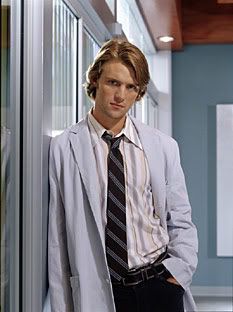
Greg House
He is the bright shining example of sarcasm. He's scary smart, and he pretty much lives in the grey area. He's greyer than Chase because he'll do the questionably ethical things just to keep himself amused.
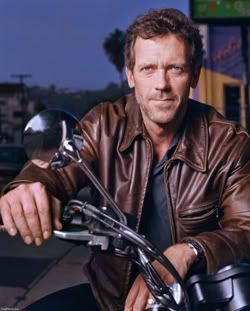

Smallville
Lex Luthor
Do I even have to explain. Lex is the whole reason I ever watched the show. I haven't in a long time. I'm told that he's recently become more straight-up evil than morally grey, but that's definitely what he was at the beginning of the series. Sarcasm is second nature to him, and he's really intelligent.
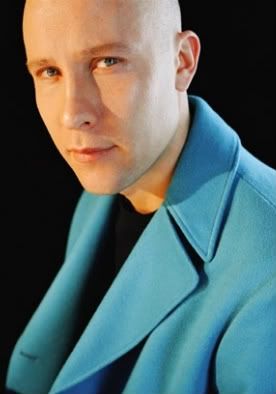
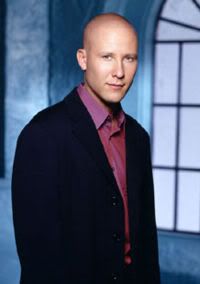
Stargate: Atlantis
Rodney McKay
He's a Super-genius that can't open his mouth without something sarcastic coming out. He's not as morally grey as some on this list, but he seems to rarely think about the consequences of the things he does with science. We've also seen him get so caught up in finding the answer that he refuses to acknowledge the major badness about to happen. At his core, though, he's probably one of the most moral people here. When he stops to think at all, he always does what he sees as the right thing, no matter how scary or difficult.
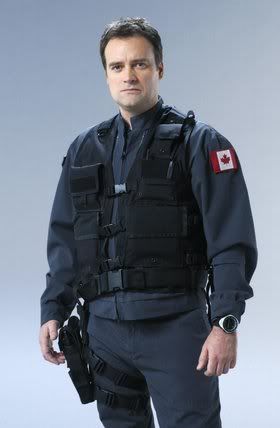

There are of course exceptions and more that fit the profile, but this already has more pictures than I would usually post at once.
The other set of things that I've been thinking about came from the poll and comment discussion here. Go and vote in the poll if you'd like. The discussion still seems to be going strong.
Basically the questions are all about age-appropriateness of certain activities and the discussion gets into how those issues apply in fandom. I'm not going to put the questions in here word for word or anything, and I may even leave some out entirely or combine some because my answer is a little fluid and applies to more than one. I do think that I'm getting the gist of all of the questions into this.
The questions were clearly written with the comic book world in mind, but I think that they are really just as applicable to say Harry Potter, Buffy the Vampire Slayer, Heroes, and other fandoms featuring teen or younger characters who deal with sex and/or violence.
The first several questions have to do with how old someone should be before they are trained in martial arts, weaponry, and weapon-like superpowers.
These are all pretty much areas in which I feel real life standards and fictional standards should be about the same.
I don't think there really is a lower age limit for martial arts. I have a cousin who started a special karate program when he was three, and I don't think that was too young. I do think that it's important to have a teacher who integrates discipline, respect, and an idea of when it's appropriate to use this knowledge into their training.
I divide weapons into two categories. The first is bladed/blunt weapons. Those I feel you should be able to train in pretty early. Again, the training is more important than the age. I do think they need to be old enough to understand death and it's permanence, because they are much more likely to kill someone with a weapon than without by accident. They definitely need to have an appreciation of the consequences of that weapon's use. The second are ranged weapons (which would include things other than firearms, but I'm really mostly meaning firearms in this). Those are trickier for me. I tend to think that bows and that sort of thing fall under the same rules as bladed/blunt weapons, but I'm most comfortable with keeping firearms (and laser/energy/etc weapons) out of people's hands until they reach the age of majority. That said, I think that anytime a child is in a home where there are guns (even if those guns are locked up) they should have a gun safety course and learn how to shoot at as young an age as possible while still understanding the danger that those weapons pose.
So then there are weapon-like superpowers, and that is also in two categories. First there are innate powers. We're talking primarily about people like the x-men or even say Buffy. I think that those people should be trained as soon as they start exhibiting that power (or in the case of slayers, earlier if possible). They need to be taught to control it, and that means more than just being able to turn it on and off. They don't have the luxury of waiting until they're older and better able to understand the consequences. It's vitally important that they are trained as soon and as thoroughly as possible. Then there are people with learned abilities. These are almost always going to be magical in nature, and many mythologies make that power innate also but in most cases its unlikely to be destructive until trained. For these cases, I think the as soon as they are able to understand the possible consequences of their actions it's okay to start training them.
The next set of questions deal specifically with vigilantism, and Batman is the pretty clear basis for them in the comments at least though there has also been some discussion of Buffy the Vampire Slayer in this context also.
Here's a spot where I think there's a difference between the real world and fiction, primarily because I don't think we should have vigilantes in the real world, while they are clearly necessary in the fictional one.
My basic answer is the age of majority. That annoys Batman fans, because Robin isn't of age. Truthfully the involvement of Robin has always been one of the only things I don't like about the Batman universe. I just don't think that there is anything good or right about sticking a kid in a costume and sending him out to fight the whack jobs that Gotham city calls criminals.
I do think that there are exceptions, though, and they're usually meta-humans. The X-Men universe has always included some teen characters for instance. If we can call what the X-Men do vigilantism then I'd say that they're exceptions, but I tend to include them in the next set of questions. But Buffy the Vampire Slayer is a much clearer case. You might get away with including Buffy herself in the police force/military role that I'm including the x-men in, because she does have authority. It's supernatural and not recognized by human law, but there is something rather legalistic about being the Slayer. That does not extend to her friends however. We can lump Oz in with the meta-humans because he's a werewolf, and in later seasons we can do the same with Willow because she's a witch. Early Willow, Xander, and Cordelia are all regular garden-variety humans though. I do make them exceptions to the rule. They learn who and what she is very early. Xander at least, and probably Willow as well would go out and fight even without Buffy or Giles' permission or help because of the loss of Jesse, and in addition they are targets simply by virtue of their friendship with Buffy. Willow is one of Angelus' first targets. They need the training to stay alive. Which lead some other commenters to ask if that training should have been made available to more people in the school, if they should have been taught to fight back. I don't really know the answer to that. Would it have helped? I kind of doubt it. Until Willow gets all magicy, they really aren't all that good at killing vampires. I suspect that telling more people would have only had two results. First, the ones who believed them might get the training, but most of them would still end up getting themselves killed. Second, a lot of people wouldn't believe them at all and it would end up bringing a lot of negative attention on Giles & Buffy (negative attention of the men in white coats sort)
Then there's the fighting crime as part of a police/military force. Again, as a rule I would say over the age of majority. As a practical matter for meta-humans the rules aren't always the same. Sometimes underage characters are given a calling/duty, like Buffy. That calling means they've got to go out and fight the good fight whether they are of age or not. Sometimes, they have powers that simply must be used, there's no way to turn them off without causing bigger troubles (and while I know I've read this device I seriously can't tell you where right now) so they're exceptions. And even when neither of those things apply, they often have abilities that lessen the risk to the extent that I think as soon as they are mature enough to understand the damage they can cause and the rules that govern their organization then they're old enough to be a part of it. The function of the age of majority is to say that there are some decisions that a child is not equipped to make, and usually those decisions involve great personal risk. This particular decisions could easily result in death. Or for a real world example, driving a stock car is a risky thing. Hitting the wall at 180 mph can kill you, and the industry has decided that people under eighteen should not be making that kind of decision for themselves (and that adults who would choose to put them in that situation are not fit guardians). Once they hit the age of majority, we say, "Okay, you want to risk your life, go ahead." Now, if racing a stock car were as safe as say, riding a bicycle on a deserted road, we wouldn't limit the age. For a character with an accelerated healing factor, shield capabilities, hardened skin, or even super-speed, that's the kind of risk reduction we're talking about. It isn't that they couldn't get killed. The kid riding his bicycle on a street with no traffic could hit a slick spot, lose control and break their neck in the fall. The super-powered kid could still get killed as well, but the risk is diminished enough that we say it's a decision they can make when they're old enough to understand the consequences.
Then there are basically three questions on sex.
The first is how old someone should be before they are allowed to have sex with someone their own age. I find the wording tricky on this one, because I wouldn't want a twelve year old having sex with anyone, their own age or not. I also don't think for a child to have sex with another child is ethically wrong for the children (depending on the circumstances their parents/guardians may have some ethical responsibility for the situation). So, I think allowed is a bad word. I don't think we should criminalize sex between kids of similar age. I think that we should provide comprehensive sex education at a very young age and reinforce those lessons regularly. I also think that medical care and contraception should be readily available.
Then there is how old someone should be before they have sex with someone older than they are or someone they work with. I think if you're having sex with someone over the age of majority, you should also be over the age of majority. Other than that, I don't think age has a thing to do with it. As long as there is a balance of power in the relationship, it's fine. I was asked if I didn't think age equaled power. I suppose it does in some circumstances, but I don't think that's universal. There are actually plenty of situations in which a younger person may have power over the older person.
The last two questions are about how old you should have to be to have sex with someone who is your teacher or who is your boss. Again, I don't think age matters. I have real issues with uneven power dynamics in a relationship, and even with the best of intentions I don't think you can adequately separate your professional relationship from your personal relationship to not have balance of power issues. Once your teacher is no longer your teacher, then you're fine. If your boss is no longer your boss (even if still in a higher position within the organization) then go for it. When they have direct power over your life, don't.
So, comments? Questions? Anything glaringly obvious that I should have talked about, but didn't? Weird logical flaws?
travels_in_time recently made a post about her type when it comes to TV guys. Her post is mostly fun and interesting, and fairly graphics heavy. Mostly it amounts to the fact that in addition to a preference for tall, dark, and handsome, she really likes the good, decent, nice guys. That got me thinking about my "type," for TV guys and unsurprisingly it is really not the same.
So, when I thought about the things that draw me to a character, particularly a male character the list was pretty short and pretty definitive. I like my TV guys to be intelligent, which doesn't necessarily mean the genius-level intellect of say Rodney McKay (though that's nice), but they do have to be really smart about something or generally intelligent enough to deal with the genius-types. I also prefer them to use sarcasm rather frequently, especially when frustrated. That's almost a function of the intelligence thing, because effective sarcasm almost always comes from really smart people. And I like for them to be morally grey. I'm not saying bad boys (although they sometimes are), but in real life I don't usually like people who see the world in black and white. That pretty much goes double for fictional people, and if they tend to live in the grey areas themselves so much the better. I'm not necessarily talking about the bad boys, though a few of these people certainly are.
I have less of a physical type for my TV men, though I do tend towards bright blue eyes and dark hair. Body types are all over the place. But these are at least some of them men on television who over the years have just done it for me.
So here are a few of these guys.
Buffyverse
Rupert Giles
Definitely intelligent, he speaks multiple languages and losing that ability is one of his worst fears. When frustrated he tends toward sarcasm and he is easily and often frustrated.
XANDER: I don't get your crazy system.
GILES: System? It's called the alphabet.
And he is arguably the most morally grey of the human characters on the show. My interest in Giles really grew with every bit of his sordid past that was revealed. I love that his story is as much a story of atonement as Angel's. Ultimately, he's a pragmatist. He does what has to be done, even when it's a little unsavory. In The Gift, he does what Buffy cannot do, something that would make her less the hero, when he kills Ben.

Giles hard at work, being smart.



Giles with Ethan, which brings me to my second Buffyverse guy.
Ethan Rayne
Okay, so he's a little less grey and a little more blackly evil, but I love him anyway. And in my own personal little world where we have a lot more backstory and a less nasty future than his past, he's more grey. Yeah, and while one can debate how smart he is in many ways, he is clearly intelligent in others.



Spike
So maybe in the beginning he was less grey, but he gets more and more grey as the shows go on. He's certainly sarcastic, and while his intelligence is debatable I think there is some evidence for it. He's far too impatient to make good plans. He's not a strategist, but he's shown as a well-educated young man when Dru turns him, and really it takes a certain amount of intelligence to write even bad poetry. I think he's usually smarter than people give him credit for.



Wesley Windham-Pryce
He is possibly the smartest guy on this list. He seems to know more languages than Giles, and he's got a great grasp of science/technology as well. When he first appeared on Buffy he was self-righteous and all about the black and white understanding of the world. I was amused by him, but I didn't like him. He was already different when he showed up on Angel and I found him kind of adorable in his awkward innocence, but as the show wore on he kept doing more and more questionably moral things (though like Giles he is primarily a pragmatist) and I just loved him more with each one. He's one of the less sarcastic men on the list, but get him annoyed and out it comes.


Chuck
Major John Casey
You don't get to be an NSA operative without being smart. He might not advertise how smart he is, but what he does takes more than brute strength and good aim. Does he ever speak in this show when he's not being sarcastic? And yeah, I think he definitely falls into the morally grey category.


CSI: NY
Danny Messer
So, he's only very pale grey, by virtue of an interesting past, he can be very very sarcastic when annoyed though, and he's smart. He's street smart and book smart, putting him fairly high up on my list.


Dirty Sexy Money
Brian Darling
Brian is my very favorite DSM character. He rarely speaks without being sarcastic and he's very smart. He's also an Episcopal priest who has had a long-term affair, has a child out-of-wedlock, and is generally nasty to people most of the time. He's not a nice guy, and I'd say he definitely falls into the grey area.


Eureka
Nathan Stark
His moral greyness is debatable, but I see him as essentially pragmatic like Giles. If it gets the job done, he'll do it, no matter how distasteful. He's sarcastic a lot of the time, though his tends to have a more playful edge to it than the angry/bitter note that most of the other people on this list have. He's a genius.



Heroes
Mohinder Suresh
He's basically a good guy, I think, but he does some questionably moral things, especially if we get into the things he does in the 5 Years Gone timeline. He's definitely capable of being fairly dark. He's only really sarcastic when very frustrated, and he's not the most easily frustrated on the list. He's extraordinarily intelligent. He's also probably the only guy on this part of the list that would make it on to my exceptions list even if his character were the most lily-white of do-gooders. He's just so pretty.


Nathan Petrelli
He's my favorite of the Petrelli clan (Unless it's his mother, but he's definitely my favorite guy). He's smart enough to be a successful attorney and get elected to Congress in a place that actually values intelligence in their politicians. He's quite often sarcastic. There are lines that I don't think he would cross, but they're a lot further out than those of most people. Even then, if it came down to protecting his family, they probably go away altogether. He's definitely more than willing to play in the darkness if the reward is great enough.


House
Robert Chase
I adore Chase, and only slightly less since he's become the big whiny crybaby of the show. He is pretty, and I like his accent, but that's not what got me hooked on the character. He's a little bitter and a lot sarcastic. He's smart, and he's the most willing of the group to make questionably ethical decisions if he thinks it will either A) save the patient, or B) get him on House's good side. I know that Foreman is the one that always gets compared to House, but in a lot of ways I think Chase is the most like him, and the most likely to become even more like him as time goes on.

Greg House
He is the bright shining example of sarcasm. He's scary smart, and he pretty much lives in the grey area. He's greyer than Chase because he'll do the questionably ethical things just to keep himself amused.


Smallville
Lex Luthor
Do I even have to explain. Lex is the whole reason I ever watched the show. I haven't in a long time. I'm told that he's recently become more straight-up evil than morally grey, but that's definitely what he was at the beginning of the series. Sarcasm is second nature to him, and he's really intelligent.


Stargate: Atlantis
Rodney McKay
He's a Super-genius that can't open his mouth without something sarcastic coming out. He's not as morally grey as some on this list, but he seems to rarely think about the consequences of the things he does with science. We've also seen him get so caught up in finding the answer that he refuses to acknowledge the major badness about to happen. At his core, though, he's probably one of the most moral people here. When he stops to think at all, he always does what he sees as the right thing, no matter how scary or difficult.


There are of course exceptions and more that fit the profile, but this already has more pictures than I would usually post at once.
The other set of things that I've been thinking about came from the poll and comment discussion here. Go and vote in the poll if you'd like. The discussion still seems to be going strong.
Basically the questions are all about age-appropriateness of certain activities and the discussion gets into how those issues apply in fandom. I'm not going to put the questions in here word for word or anything, and I may even leave some out entirely or combine some because my answer is a little fluid and applies to more than one. I do think that I'm getting the gist of all of the questions into this.
The questions were clearly written with the comic book world in mind, but I think that they are really just as applicable to say Harry Potter, Buffy the Vampire Slayer, Heroes, and other fandoms featuring teen or younger characters who deal with sex and/or violence.
The first several questions have to do with how old someone should be before they are trained in martial arts, weaponry, and weapon-like superpowers.
These are all pretty much areas in which I feel real life standards and fictional standards should be about the same.
I don't think there really is a lower age limit for martial arts. I have a cousin who started a special karate program when he was three, and I don't think that was too young. I do think that it's important to have a teacher who integrates discipline, respect, and an idea of when it's appropriate to use this knowledge into their training.
I divide weapons into two categories. The first is bladed/blunt weapons. Those I feel you should be able to train in pretty early. Again, the training is more important than the age. I do think they need to be old enough to understand death and it's permanence, because they are much more likely to kill someone with a weapon than without by accident. They definitely need to have an appreciation of the consequences of that weapon's use. The second are ranged weapons (which would include things other than firearms, but I'm really mostly meaning firearms in this). Those are trickier for me. I tend to think that bows and that sort of thing fall under the same rules as bladed/blunt weapons, but I'm most comfortable with keeping firearms (and laser/energy/etc weapons) out of people's hands until they reach the age of majority. That said, I think that anytime a child is in a home where there are guns (even if those guns are locked up) they should have a gun safety course and learn how to shoot at as young an age as possible while still understanding the danger that those weapons pose.
So then there are weapon-like superpowers, and that is also in two categories. First there are innate powers. We're talking primarily about people like the x-men or even say Buffy. I think that those people should be trained as soon as they start exhibiting that power (or in the case of slayers, earlier if possible). They need to be taught to control it, and that means more than just being able to turn it on and off. They don't have the luxury of waiting until they're older and better able to understand the consequences. It's vitally important that they are trained as soon and as thoroughly as possible. Then there are people with learned abilities. These are almost always going to be magical in nature, and many mythologies make that power innate also but in most cases its unlikely to be destructive until trained. For these cases, I think the as soon as they are able to understand the possible consequences of their actions it's okay to start training them.
The next set of questions deal specifically with vigilantism, and Batman is the pretty clear basis for them in the comments at least though there has also been some discussion of Buffy the Vampire Slayer in this context also.
Here's a spot where I think there's a difference between the real world and fiction, primarily because I don't think we should have vigilantes in the real world, while they are clearly necessary in the fictional one.
My basic answer is the age of majority. That annoys Batman fans, because Robin isn't of age. Truthfully the involvement of Robin has always been one of the only things I don't like about the Batman universe. I just don't think that there is anything good or right about sticking a kid in a costume and sending him out to fight the whack jobs that Gotham city calls criminals.
I do think that there are exceptions, though, and they're usually meta-humans. The X-Men universe has always included some teen characters for instance. If we can call what the X-Men do vigilantism then I'd say that they're exceptions, but I tend to include them in the next set of questions. But Buffy the Vampire Slayer is a much clearer case. You might get away with including Buffy herself in the police force/military role that I'm including the x-men in, because she does have authority. It's supernatural and not recognized by human law, but there is something rather legalistic about being the Slayer. That does not extend to her friends however. We can lump Oz in with the meta-humans because he's a werewolf, and in later seasons we can do the same with Willow because she's a witch. Early Willow, Xander, and Cordelia are all regular garden-variety humans though. I do make them exceptions to the rule. They learn who and what she is very early. Xander at least, and probably Willow as well would go out and fight even without Buffy or Giles' permission or help because of the loss of Jesse, and in addition they are targets simply by virtue of their friendship with Buffy. Willow is one of Angelus' first targets. They need the training to stay alive. Which lead some other commenters to ask if that training should have been made available to more people in the school, if they should have been taught to fight back. I don't really know the answer to that. Would it have helped? I kind of doubt it. Until Willow gets all magicy, they really aren't all that good at killing vampires. I suspect that telling more people would have only had two results. First, the ones who believed them might get the training, but most of them would still end up getting themselves killed. Second, a lot of people wouldn't believe them at all and it would end up bringing a lot of negative attention on Giles & Buffy (negative attention of the men in white coats sort)
Then there's the fighting crime as part of a police/military force. Again, as a rule I would say over the age of majority. As a practical matter for meta-humans the rules aren't always the same. Sometimes underage characters are given a calling/duty, like Buffy. That calling means they've got to go out and fight the good fight whether they are of age or not. Sometimes, they have powers that simply must be used, there's no way to turn them off without causing bigger troubles (and while I know I've read this device I seriously can't tell you where right now) so they're exceptions. And even when neither of those things apply, they often have abilities that lessen the risk to the extent that I think as soon as they are mature enough to understand the damage they can cause and the rules that govern their organization then they're old enough to be a part of it. The function of the age of majority is to say that there are some decisions that a child is not equipped to make, and usually those decisions involve great personal risk. This particular decisions could easily result in death. Or for a real world example, driving a stock car is a risky thing. Hitting the wall at 180 mph can kill you, and the industry has decided that people under eighteen should not be making that kind of decision for themselves (and that adults who would choose to put them in that situation are not fit guardians). Once they hit the age of majority, we say, "Okay, you want to risk your life, go ahead." Now, if racing a stock car were as safe as say, riding a bicycle on a deserted road, we wouldn't limit the age. For a character with an accelerated healing factor, shield capabilities, hardened skin, or even super-speed, that's the kind of risk reduction we're talking about. It isn't that they couldn't get killed. The kid riding his bicycle on a street with no traffic could hit a slick spot, lose control and break their neck in the fall. The super-powered kid could still get killed as well, but the risk is diminished enough that we say it's a decision they can make when they're old enough to understand the consequences.
Then there are basically three questions on sex.
The first is how old someone should be before they are allowed to have sex with someone their own age. I find the wording tricky on this one, because I wouldn't want a twelve year old having sex with anyone, their own age or not. I also don't think for a child to have sex with another child is ethically wrong for the children (depending on the circumstances their parents/guardians may have some ethical responsibility for the situation). So, I think allowed is a bad word. I don't think we should criminalize sex between kids of similar age. I think that we should provide comprehensive sex education at a very young age and reinforce those lessons regularly. I also think that medical care and contraception should be readily available.
Then there is how old someone should be before they have sex with someone older than they are or someone they work with. I think if you're having sex with someone over the age of majority, you should also be over the age of majority. Other than that, I don't think age has a thing to do with it. As long as there is a balance of power in the relationship, it's fine. I was asked if I didn't think age equaled power. I suppose it does in some circumstances, but I don't think that's universal. There are actually plenty of situations in which a younger person may have power over the older person.
The last two questions are about how old you should have to be to have sex with someone who is your teacher or who is your boss. Again, I don't think age matters. I have real issues with uneven power dynamics in a relationship, and even with the best of intentions I don't think you can adequately separate your professional relationship from your personal relationship to not have balance of power issues. Once your teacher is no longer your teacher, then you're fine. If your boss is no longer your boss (even if still in a higher position within the organization) then go for it. When they have direct power over your life, don't.
So, comments? Questions? Anything glaringly obvious that I should have talked about, but didn't? Weird logical flaws?